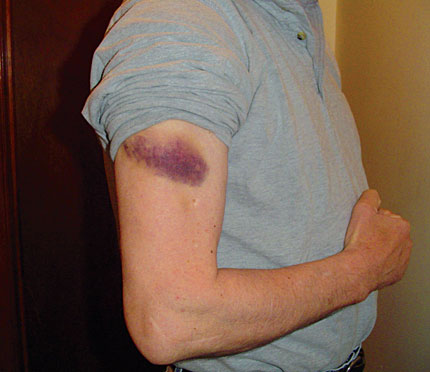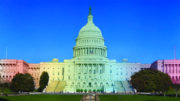By: Sara Brown/TRT Assistant Editor—
BOSTON, Mass.—As the nation becomes more educated of the epidemic of sexual assaults happening on college campuses, LGBTQ students (especially students of color) facing the same challenges continue to be ignored or overlooked, according to recent studies.
“From a lens of intersectionality, when we add understandable barriers that LGBT students might face, such as coming out, fitting in across multiple communities, minority stress, access to supportive social norms, and how systems have historically responded to LGBT survivors, students living within these communities often experience compounded concerns surrounding vulnerability to predatory violence,” said Assistant Director of Boston College Women’s Center, Rachel DiBella. “Under certain circumstances, some LGBT students might be even more reluctant to report their assault when their perpetrator identifies within the community, due to concerns of further stigmatizing the community.”
Director of Sexual Harassment and Rape Prevention Program (SHARPP) at University of New Hampshire, Amy Culp, agrees with DiBella.
“It may be that they have yet to identify as a member of the LGBT community so they do not want police, student administration, etc., to know,” she said. “As in a majority of abusive relationships, the victim/survivor knows the abuser. LGBT student populations are often smaller in size and the chances that the victim/survivor knows the perpetrator increases. This may cause a social division within a group, which is hard for a survivor to handle.” [pullquote]Transgender people are the most impacted in the community when it comes to sexual violence. Studies also show that 64 percent of transgender people have experienced sexual assault in their lifetime.[/pullquote]
A recent University of Michigan survey found that LGBT students and students of color were at least twice as likely to be assaulted compared to their heterosexual and white peers. While sexual assault and rape is an underreported crime in general, some believe that LGBT students might be too scared to come forward and report their assault for a plethora of reasons.
Culp adds that students might worry that they won’t be understood fully if they report a crime because of their sexual orientation. Overall, 68 percent of sexual assaults are not reported to the police, according to RAINN (Rape, Abuse, and Incest National Network).
“Historically, systems have not always been seen as supportive to LGBT survivors and that legacy may linger in some communities,” Culp said. “Survivors may be worried and concerned that a police officer will not understand their relationship, or that a school administrator may not be sensitive to additional challenges.”
Negative views on the LGBT community are one of the reasons why LGBT students are victims of violent crimes. According to National Center for Lesbians Rights and CDC reports, approximately 1 in 8 lesbian women and nearly half of bisexual women experience rape in their lifetime. Twenty-six percent of gay men have experienced rape or sexual assault. Transgender people are the most impacted in the community when it comes to sexual violence. Studies from the National Task Force, also show that 64 percent of transgender people have experienced sexual assault in their lifetime.
“I personally believe that oppression is one significant reason for this. Attitudes and beliefs about these students often mean they are seen as ‘less than’ by others,” said Nathan Brewer, Crisis Intervention Counselor at the Sexual Assault Response and Prevention Center at Boston University. “Unfortunately, when people are not given their full humanity, they are treated poorly by people around them. We see parallels with this regarding other, overlapping communities where there is prejudice (racial groups, people with disabilities, etc.). In all of these groups the rates of sexual misconduct are higher than for white, able-bodied, cisgendered, straight folks.”
For students to be willing to report crimes when they happen, they have to trust their institution.
“Often LGBTQ folks don’t trust the police or other figures of authority,” he said. “They are more likely to experience police violence for instance, so calling the police to report the crime may be trading one form of violence for another.”
Added Brewer: “Also, many do not trust institutions—such as schools, churches, etc.—with reasonable fears that those places will not be supportive due to prejudice around their gender and/or sexual identities”
Providing support and listening to students’ concerns can also make a difference in traumatic situations.
“It is important that survivors feel empowered as they seek the resources available to them,” said Mount Holyoke College Associate Dean, Rene Davis. “We recognize that no matter the circumstances, sharing these experiences is difficult and so we want to provide as much support as we can so our students can engage academically and socially. We provide information in a range of ways so our students know they can share their narrative either confidentially or anonymously. This is to ensure that anyone who files a complaint is in control of where their story goes, whether they report on- or off-campus.”
To develop trust, colleges and universities need to become more inclusive. DiBella believes helping LGBT students feel supported adds to the community.
“I encourage folks in positions of power and privilege at universities to support materials and resources that address the unique concerns of historically ignored communities of survivors, including those who are LGBT survivors and even cisgender men.” [pullquote]“Anyone can be raped. Also, needed is additional education and training, particularly about the root causes of sexual violence that grow out of sexism, racism, classism, homophobia, etc.”—Kim Dawkins, Worcester, Mass. Executive Director for Pathways for Change[/pullquote]
One way to become more inclusive is dismantling the troubling myths about LGBT people and their sexuality.
“Sexual Violence does not discriminate,” said Kim Dawkins, Worcester, Mass. Executive Director for Pathways for Change, a rape crisis center that often works with college students. “Anyone can be raped. Also, needed is additional education and training, particularly about the root causes of sexual violence that grow out of sexism, racism, classism, homophobia, etc.”
Dawkins believes colleges can help educate students on the reality of sexual abuse.
“Sexualized violence in general is ripe with many myths and misconceptions that we, as rape crisis counselors and educators, are often trying to combat,” she said. “Colleges can help be the ‘mythbusters’ by helping their campuses, not just understand and break apart those myths, but also help everyone understand that these myths are dangerous. They are dangerous by keeping survivors silent, perpetuating stereotypes, and promoting victim blaming attitudes.”
Some of these types of beliefs can uphold untrue stereotypes about the LGBT community.
“These myths certainly still hold a problematic place in the global discourse about trauma and violence, and they both perpetuate and are produced by dehumanizing false beliefs that LGBT folks are hypersexual, untrustworthy, and inhabiting bodies that are less deserving of safety and personhood,” DiBella said.
Dawkins advises colleges and universities to reach out to local rape crisis centers and develop professional relationships with them.
“Getting connected to local programs for additional LGBT support as well as free and confidential crisis counseling is key in helping to expand a student’s support system and the institution’s ability to best meet the LGBT student’s needs,” she said.
DiBella suggested that colleges start using more inclusive speech that helps students feel welcomed and safe.
“I encourage those in helping roles to consider using inclusive language in conversation with students, setting aside presumptions about the gender identities of parties involved in their processes, and providing training to folks across departments in an appreciative and collaborative fashion, which can help build an inclusive, common language about victimology, trauma, intersectionality,” DiBella said.
Brewer said a way to make students feel safer is to get the students involved.
“One way that many colleges are intervening is by training students how to be active bystanders in situations where sexual misconduct is about to occur,” he said. “It teaches students skills to identify these signs and to intervene. These interventions should be inclusive of gender and sexual minorities—both in outreach to groups who will take these trainingS and within the training itself by using gender neutral scenarios and/or explicitly queer survivors.”
If you or someone you know has been a victim of sexual assault, please visit https://rainn.org/. To also learn more about Pathways for Change, please visit http://tinyurl.com/pvpgsmm.









